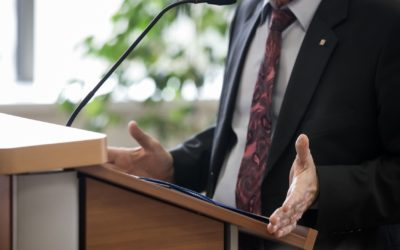The federal Court of Appeals has declared that, at least for labor law, tribal casinos are to be treated exactly the same as casinos that are owned by private citizens. In other words, a tribal casino is not a part of a government, but merely just another privately owned business.
At a minimum, this means that federal labor law applies to all employees at Indian casinos. This includes the laws surrounding the right to unionize, the major issue of dispute in the fight over new compacts in California.
At the maximum, the case could result in the virtual end of tribal sovereignty. Courts would never openly declare that tribes are not sovereign governments. Instead, using this decision, they could find that almost every federal and state statute and regulation applies to Indian casinos and to any other tribal business that is not limited to members of that tribe.
The case began with a dispute between two unions anxious to capture the workers at the San Manuel’s Indian Bingo and Casino, the closest tribal gaming to Los Angeles. The Hotel Employees and Restaurant Employees International Union was denied access to the casino for organizing while its rival, the Communications Workers of America, was not. The federal government naturally ruled this was unfair.
But the major question was whether the tribe’s casino is even subject to the nation’s labor laws. In a long, detailed decision, the Court ruled that it is.
The Court focused on the facts that most of the patrons and even employees were not members of the tribe, that casinos are not a traditional part of Indian life, and that the gaming operation was only a way to raise money, and not an essential part of the tribe’s self-government.
The Court then declared a fundamental change in the way courts will decide if a law applies to a tribe.
It is well-established that tribes have sovereignty. This includes the right to be exempt from federal and state laws and not to be sued without their consent. Tribes can voluntarily give up some of their sovereignty, as they often do when signing contracts.
Tribal sovereignty can also be taken away by Congress. Until now, courts have held that this can only happen if there is an express statement by Congress limiting a tribe’s sovereignty.
This Court ruled that the express statement is required only when a federal or state law will interfere with a tribe’s governmental functions. In all other cases, outside laws apply to Indians, unless there is a clear indication that they are exempt.
So, the law has been turned on its head. It used to be that tribes were safe in assuming a law, say the requirement that casinos report large cash transactions to the U.S. Treasury, did not apply to them, because there was no express statement that tribes were required to file these reports. Now the assumption has to be the opposite: All federal and state laws, including all statutes and regulations, apply to tribal casinos unless there is an explicit statement in the law itself that tribes are exempt.
Tribes are right to be worried. The Court cited a recent case from California holding that a state law dealing with political donations applies to tribes.
But tribes should be careful about appealing. The Supreme Court has made it clear that it hates tribal sovereign immunity. This case would give the Court the opportunity to declare that not only all laws, but also lawsuits, apply to tribes unless they directly interfere with tribal governmental functions or there is an express declaration regarding the tribe in an act of Congress.
END
© Copyright 2008. Professor I Nelson Rose is recognized as one of the world’s leading experts on gambling law. His latest books, Gaming Law: Cases and Materials and Internet Gaming Law, are available through his website, www.GamblingAndTheLaw.com.
Testifying in French
I don’t usually write about my cases. But the trial court has reached its verdict. And I want to describe my experience testifying as an expert witness in a criminal trial in Paris, France. In French. Well, the trial was conducted entirely in French. I spoke...





0 Comments